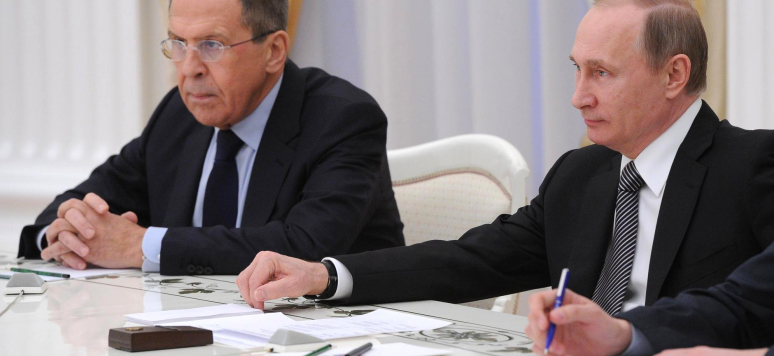Chapter also available in French as “Les relations avec la Russie” in L-M Clouet and A Marchetti (eds.), L'Union Européenne et le Monde en 2020 : visions prospectives franco-allemandes, Ifri/ZEI, 2011.


The Foreign Policy and Security research axis whithin Ifri's Russia / Eurasia Center analyses the relations of Russia and the Eurasian States with the rest of the world, with a special focus on security issues.
Director of Ifri's Russia / Eurasia Center
...Research Fellow, Russia / Eurasia Center
...Project Officer, Russia / Eurasia Center
Associate Research Fellow, Russia / Eurasia Center
...Associate Research Fellow, Russia / Eurasia Center
...Associate Fellow, Russia / Eurasia and Geopolitics of Technologies Centers
...Chapter also available in French as “Les relations avec la Russie” in L-M Clouet and A Marchetti (eds.), L'Union Européenne et le Monde en 2020 : visions prospectives franco-allemandes, Ifri/ZEI, 2011.
Since summer 2009, instability in the eastern part of the North Caucasus has escalated, a security threat against which the Russian leadership cannot find a strategy. Despite a maximum-intensity counterinsurgency campaign, the rebels have been able to expand their support base, staging...
Nuclear weapons have traditionally occupied an important place in Russia’s national security strategy. As Russia and the United States have been reducing their nuclear arsenals since the end of the Cold War, their relationship has undergone a complex transformation. Russia, however, still...
Russian writers like Dmitri Trenin have called developing the Russian Far East (RFE) a civilizational task. At the same time Moscow has acknowledged that developing the RFE is the foundation for any successful Russian claim to an independent great power status in Asia.
The administrations of Barack Obama and Dmitry Medvedev have committed to a process of "resetting" US-Russian relations on a foundation of mutual interests and pragmatic collaboration.
Relations between Russia and Saudi Arabia have never been as friendly as they were in 2009. After years of tension over Saudi support for Islamist fundamentalism in the post-Soviet space and Russia's proximity to Iran and Iraq, Moscow and Riyadh have progressively moved closer to each other....
International relations in Europe are now entering a period of flux as the legacy of the cold war wanes and the "outsider" countries, notably Russia and Turkey, are rethinking their mutual relations as well as their place in the world.
It is now necessary to ask ourselves what place Europe holds in Russian foreign policy, given the recent developments in the latter. Indeed, Europe is by far Russia's most important partner. Nevertheless, Russia is developing a discourse of emerging state, in order to highlight the rapid loss...
Russia's foreign policy toward the Greater Middle East is not an aggressive, anti-Western one, but a defensive policy aimed more at protecting Russian economic interests, working with virtually any government that opposes Sunni radicalism, and preventing Moscow from becoming a target of Muslim...
Even though Russia's economy has returned to growth-on the back of higher oil prices-the financial crisis of 2008-09 will continue to reverberate across Russian politics and foreign policy. Domestically, the crisis has called into question the "social bargain" of the Putin years. It has also...